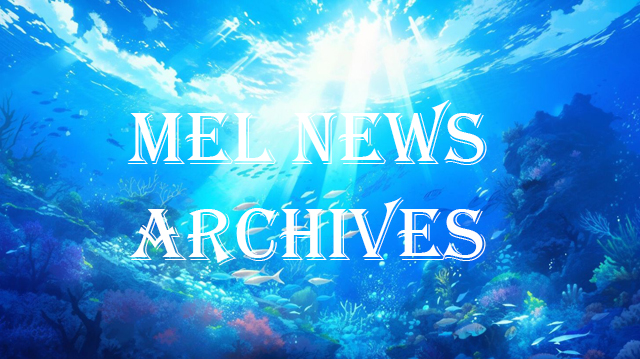1. Name and Objective
Marine Eco-Label Japan (MEL) is a standard/certification scheme aimed at supporting seafood producers that are taking proactive measures to manage fishery resources for their sustainable use and the conservation of marine ecosystems, as well as processors and distributors that make positive efforts to procure seafood from such producers; ensuring transparency with regard to resource management and handling of seafood in the processing/distribution stages; and helping all fisheries-related businesses to gain credibility and consumers to make appropriate choices.
The Marine Eco-Label Japan Council (MEL Council) was founded in December 2016 as the scheme owner that manages and operates the MEL program.
The MEL scheme is structured in line with the guidelines for ecolabelling of fishery products adopted in Rome in March 2005 by the Food and Agriculture Organization (FAO) of the United Nations. We aim at gaining wide acceptance of MEL as an international standard. At the same time, the scheme reflects the characteristics of Japan’s fisheries industry, which has historically given unique consideration to fishery resources management and environmental protection as a way of valuing the country’s biological, industrial and culinary diversity.
Furthermore, in light of the fact that most fishers and processors in Japan are small and medium-sized in scale, we also believe that it is MEL’s mission to reduce the financial burden on applicants in acquiring certifications.
Name of scheme: Marine Eco-Label Japan
Abbreviation: MEL
Scheme owner: Marine Eco-Label Japan Council (MEL Council)
2.Overview of MEL
(1) Scheme Owner
MEL is operated by the Marine Eco-Label Japan Council (MEL Council).
When launched in 2007, MEL was a project operated by the Japan Fisheries Association. In December 2016, the MEL Council was established in response to growing public interest in marine ecolabelling within and outside Japan. It took over the scheme while at the same time reforming it to secure transparency and fairness with the aim of gaining recognition as an international standard.
(2) Structure of MEL
<Development of standards and assessment criteria>
In addition to its directors and the board of directors tasked with coordinating the organization and all business operations, the Council has in place the Standards Committee, which formulates and manages the certification criteria (hereafter, “Certification Standards”) and the assessment criteria for judging the conformity with the standards (hereafter, “Assessment Criteria”). Furthermore, a range of Working Groups are established to plan the activities needed for operating the scheme. Wide-ranging members are solicited for the Working Groups, including external experts to help operate and proliferate the scheme from an objective point of view.
*Operational Management Regulations(OMR)
*Detailed Rules of OMR
*Guideline for Establishment of Standard Setting Committee
<MEL Work Program>
*MEL work program_20220401-20220930
*MEL work-program_20220801-20220930
*MEL work-program_20221001-20230331
*MEL work-program_20230401-20230930
*MEL work-program_20231001-20240331
*MEL work-program_20240401-20240930
*MEL work-program_20241001-20250331
*MEL work-program_20250401-20250930
*MEL work-program_20251001-20260331
<To gain recognition as an international standard>
It is critical for MEL to be approved by international bodies if it is to achieve international recognition, transparency and fairness, to be assessed as following the Food and Agriculture Organization (FAO) Guidelines, and to win the trust of society.
MEL is therefore seeking to be approved by the Global Sustainable Seafood Initiative (GSSI).
<Structure for certifications>
Certifications must be granted in a fair and objective manner, which means that the certification procedure should be undertaken by organizations that are equipped with a certain level of capacity but unrelated to the scheme owner. With the aim of ensuring this structure, the capacity of certification bodies that grant certifications should be assessed and accredited by accreditation bodies. Furthermore, the qualification of accreditation bodies also needs to be internationally guaranteed.
By fully having the above structure in place, MEL can be genuinely established as a credible marine ecolabel accepted worldwide.
*Organization of Marine Eco-Label Japan Scheme
(3) Certification Bodies
To qualify as a certification body for MEL, an organization needs to be a legal entity that performs independent, fair and impartial assessments and highly accurate audits; to be equipped with a certain level of technical knowledge and experience pertaining to each type of certification; to adhere to the MEL Council’s policy and the philosophy behind the MEL scheme; and to be accredited by an accreditation body. Organizations that meet the foregoing requirements can be registered with the MEL Council (the scheme owner) as a certification body and are given approval to perform certification assessments for MEL.
Certification bodies also need to meet the requirements set forth in the scheme documents below, as well as to provide certification auditors with training based on the Training Manual for the MEL Auditors formulated by the MEL Council.
Upon receiving applications from applicants, certification bodies assess them in accordance with the MEL Standards and indicators of conformity. The certification bodies are required to report to the MEL Council about the certifications and maintain management by regularly monitoring whether the certification requirements are complied with.
(4) Accreditation Bodies
An accreditation body is a third-party organization that accredits certification bodies as being capable of performing assessments for MEL certifications. While assuring the technological capacity and credibility of certification bodies, an accreditation body monitors certification bodies to ensure that such capacity and credibility are maintained.
To qualify as an accreditation body, an organization needs to be a legal entity independent from the scheme owner, its certification bodies, and their related parties; to be equipped with a certain level of technical knowledge and experience for performing fair and impartial accreditations; and to be deemed as adhering to the MEL Council’s policy and the philosophy behind the MEL scheme.
As with certification bodies, accreditation bodies must also be internationally approved or affiliated with an international body in order for the entire scheme to be globally recognized.
The MEL Council, therefore, requested the Japan Accreditation Board (JAB), which understands the Council’s policy and MEL’s philosophy, to accredit the MEL certification bodies. A member of the International Accreditation Forum (IAF), the JAB accredits product certification bodies and inspection bodies based on ISO standards.
・Japan Accreditation Board (JAB)

